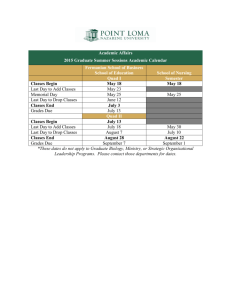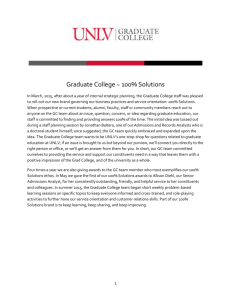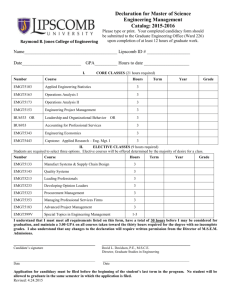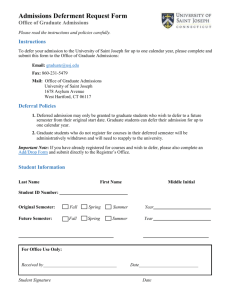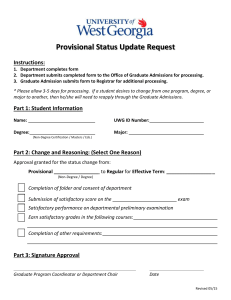1 Creating a Back-up Plan Although there are a variety of factors that
advertisement
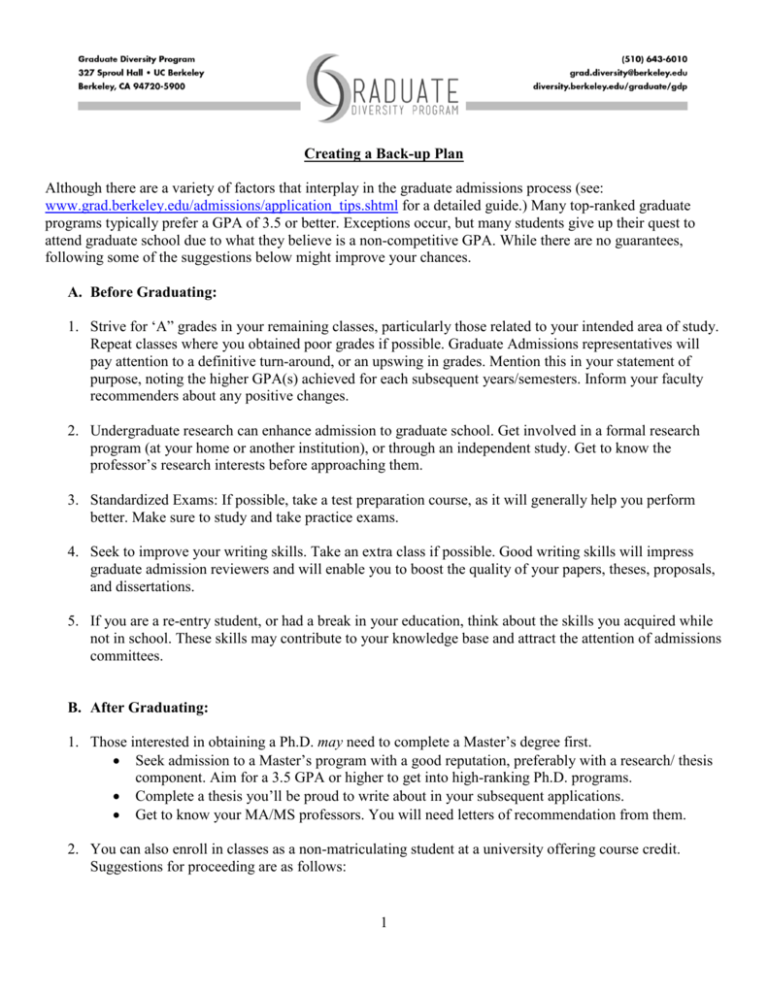
Creating a Back-up Plan Although there are a variety of factors that interplay in the graduate admissions process (see: www.grad.berkeley.edu/admissions/application_tips.shtml for a detailed guide.) Many top-ranked graduate programs typically prefer a GPA of 3.5 or better. Exceptions occur, but many students give up their quest to attend graduate school due to what they believe is a non-competitive GPA. While there are no guarantees, following some of the suggestions below might improve your chances. A. Before Graduating: 1. Strive for ‘A” grades in your remaining classes, particularly those related to your intended area of study. Repeat classes where you obtained poor grades if possible. Graduate Admissions representatives will pay attention to a definitive turn-around, or an upswing in grades. Mention this in your statement of purpose, noting the higher GPA(s) achieved for each subsequent years/semesters. Inform your faculty recommenders about any positive changes. 2. Undergraduate research can enhance admission to graduate school. Get involved in a formal research program (at your home or another institution), or through an independent study. Get to know the professor’s research interests before approaching them. 3. Standardized Exams: If possible, take a test preparation course, as it will generally help you perform better. Make sure to study and take practice exams. 4. Seek to improve your writing skills. Take an extra class if possible. Good writing skills will impress graduate admission reviewers and will enable you to boost the quality of your papers, theses, proposals, and dissertations. 5. If you are a re-entry student, or had a break in your education, think about the skills you acquired while not in school. These skills may contribute to your knowledge base and attract the attention of admissions committees. B. After Graduating: 1. Those interested in obtaining a Ph.D. may need to complete a Master’s degree first. • Seek admission to a Master’s program with a good reputation, preferably with a research/ thesis component. Aim for a 3.5 GPA or higher to get into high-ranking Ph.D. programs. • Complete a thesis you’ll be proud to write about in your subsequent applications. • Get to know your MA/MS professors. You will need letters of recommendation from them. 2. You can also enroll in classes as a non-matriculating student at a university offering course credit. Suggestions for proceeding are as follows: 1 • • • • Ask the Graduate Admissions Chair at your intended graduate program(s) which upper division or graduate level classes might increase your potential for graduate admission. Focus on obtaining “A” grades. Inform the Admissions Chair of your progress. If you can’t get advice on specific classes, enroll in foundational/theoretical courses that will give you appropriate background/current knowledge. Get to know the professors from these classes, as they may be able to write strong letters of recommendation for you. Approach a professor about the possibility of conducting research. Acquiring research in this capacity is highly regarded as you will be learning new skills, obtaining advanced knowledge, and showing commitment to future study. 3. Round out your strategy by getting creative. • • • • • Volunteer to conduct research with a faculty member from your alma mater. Participate in an internship where you can work on an academically focused project. Take classes to increase your skills in areas needing improvement. Seek advice from current graduate students enrolled in your proposed area of study. Find an academic mentor who might guide you through the application process. 2
